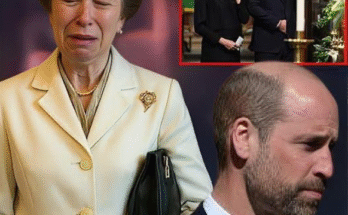On September 11, 2025, Karen Attiah, a prominent columnist for The Washington Post, was terminated following her social media commentary on the assassination of conservative activist Charlie Kirk. Attiah’s dismissal has sparked widespread debate over journalistic integrity, free speech, and the boundaries of editorial conduct in the digital age.
Background on Karen Attiah
Attiah joined The Washington Post in 2014 and was appointed as the Global Opinions Editor in 2016. She became a full-time opinion columnist in 2021, gaining recognition for her incisive commentary on issues of race, politics, and social justice. As the last Black full-time opinion columnist at the Post, Attiah’s voice was considered integral to the newspaper’s editorial diversity.
The Incident: Social Media Posts on Charlie Kirk’s Assassination
Following Charlie Kirk’s fatal shooting on September 10, 2025, Attiah took to Bluesky, a social media platform, to express her views. In her posts, she criticized what she perceived as “excessive, false mourning” for Kirk, whom she accused of previously making disparaging remarks about Black women. Attiah’s commentary included references to Kirk’s alleged statement about Black women lacking “brain processing power,” a claim that had been widely circulated but was later clarified as a misrepresentation of his actual remarks.
The Washington Post cited these posts as “gross misconduct,” alleging that they violated the newspaper’s social media policy, which prohibits disparagement based on race or other protected categories. The Post also claimed that Attiah’s comments endangered the safety of her colleagues, a charge she vehemently denies. In response, Attiah expressed her belief that her dismissal was part of a broader pattern of silencing Black voices in media and other sectors.
Public and Institutional Reactions
Attiah’s firing has elicited a range of responses from various quarters. Some colleagues and media observers have expressed concern that the Post’s actions reflect a chilling effect on journalistic expression, particularly for marginalized voices. The newspaper’s union and free press advocates have condemned the decision, arguing that it undermines the principles of editorial independence and free speech.
Conversely, critics argue that Attiah’s posts crossed professional boundaries by making inflammatory statements about a public figure shortly after his death. They contend that while journalists have a duty to hold power to account, they must also exercise discretion and sensitivity, especially in the immediate aftermath of tragic events.
Broader Context: Editorial Shifts at The Washington Post
Attiah’s dismissal coincides with reported editorial changes at The Washington Post under the leadership of opinion editor Adam O’Neal. Sources indicate that O’Neal has been steering the newspaper’s editorial stance toward promoting “personal liberties and free markets,” a shift that has led to the departure of several writers whose views did not align with this direction. Attiah’s termination is seen by some as part of this broader trend of consolidating editorial voices and reducing ideological diversity within the opinion section.
Legal and Professional Implications
In the wake of her dismissal, Attiah has threatened legal action against The Washington Post, alleging wrongful termination and discrimination. Legal experts note that while private employers have broad discretion in employment matters, they must also adhere to contractual obligations and cannot engage in discriminatory practices based on race or other protected characteristics. The outcome of any legal proceedings will depend on the specifics of Attiah’s employment contract and the circumstances surrounding her dismissal.
Professionally, Attiah’s firing raises questions about the role of journalists in the digital age. With the rise of social media, journalists increasingly find themselves navigating the complex terrain between personal expression and professional responsibility. While social media platforms offer a space for journalists to engage with the public, they also expose them to scrutiny and potential repercussions from their employers.
Conclusion: A Case Study in Modern Journalism
The termination of Karen Attiah from The Washington Post serves as a poignant case study in the evolving landscape of modern journalism. It underscores the tensions between journalistic independence, editorial policies, and the influence of social media on public discourse. As the media industry continues to grapple with these challenges, Attiah’s case highlights the need for clear guidelines and open dialogue regarding the boundaries of journalistic conduct in the digital era.


